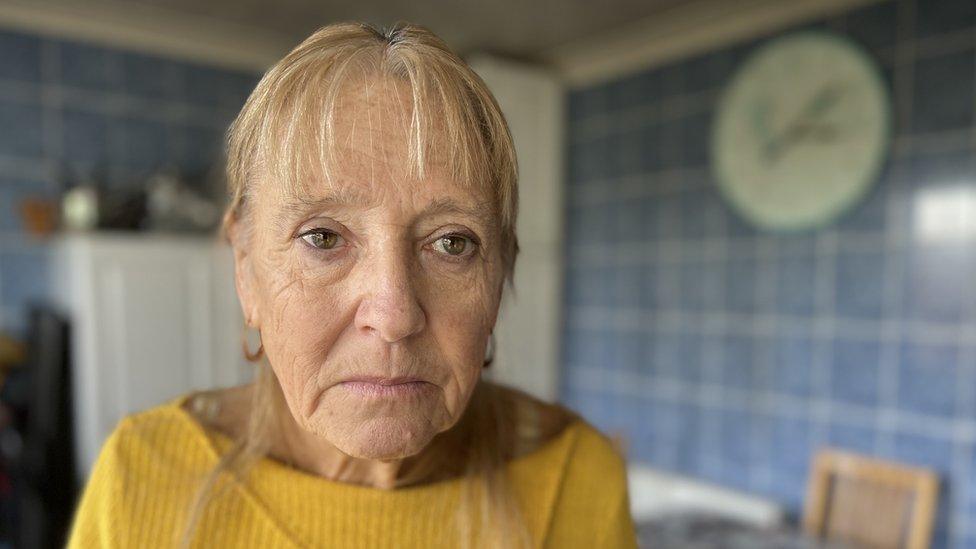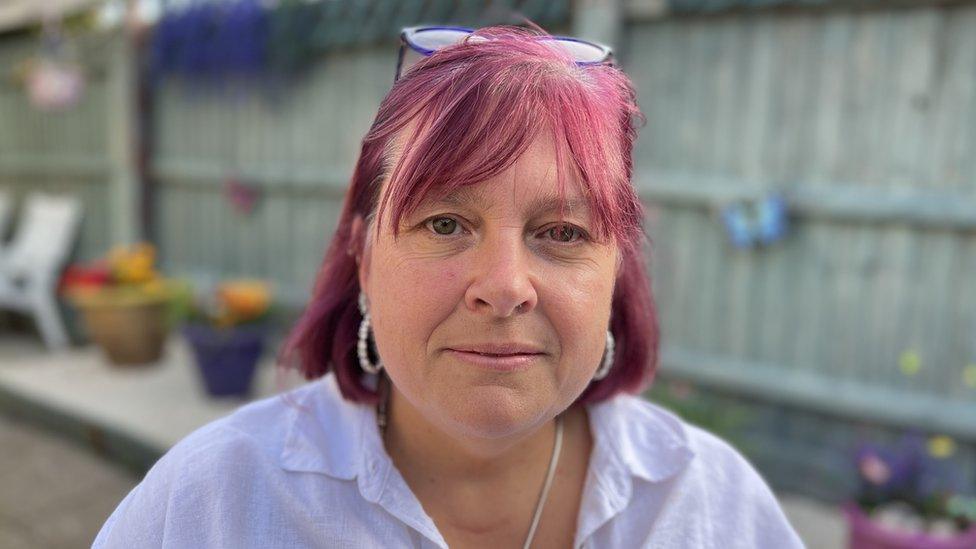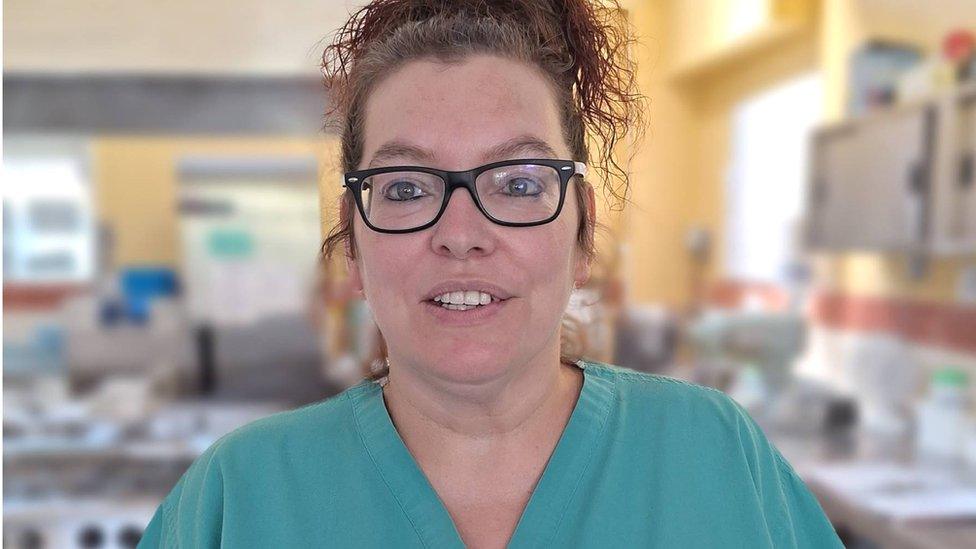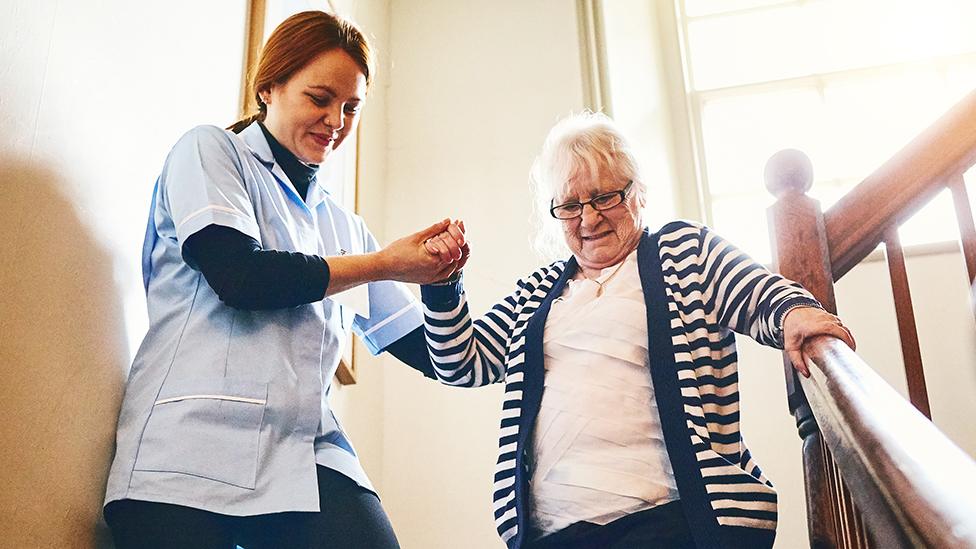Adult social care: 'I just need somebody to check in on me'
- Published

Vera Shilling says that accessing the right social care can be "difficult" because it is more focused on "basic needs"
A woman says the social care she desperately needs is difficult to access because it is only "focussed on basic needs".
Vera Shilling, 62, from Cambridgeshire, was left severely visually impaired after an infection 12 years ago.
She said that because she could wash and dress herself, social care became "non-existent" and not "flexible".
"It would just be nice to know that there was somebody coming in to check on me," she said.
Mrs Shilling told a Healthwatch conference in Peterborough that she had lost her "safety net" after the death of her partner and carer Terry last year.
She had a care re-assessment, but was told she would have to pay.
The issue has prompted a charity to call for care support workers to be paid in line with NHS staff for the "demanding" and emotional" job.

Vera Shilling said the death of her partner Terry last year made her realise just how much he helped her with everyday tasks
Mrs Shilling said: "If I spill milk on a worktop and wipe it off, I didn't really know whether I've really wiped it off or whether I've just smeared it over the top.
"It would just be nice to know that there was somebody at some point coming in just to check on me and check on my state of health and wellbeing."
She told the conference adult social care was largely focussed on the ability of patients to carry out basic tasks.
"Can somebody get up in the morning? Can they wash and dress themselves, and can they eat?" she said.
"If you can do those, that's where social care stops it doesn't really go into things like, is my house clean enough, am I lonely?"

Caron Males is a locality manager for Dimensions, a provider that supports people with learning disabilities in the community
Caron Males, of the non-profit social care provider Dimensions, is part of a group petitioning for care support workers to be paid in line with an NHS Band 3 care assistant.
She said: "It's a very demanding job, very emotional, you need to have lots of training in terms of medical needs.
"Support workers support people with all complex disabilities to live their lives in the community and they need recognition for what they are doing."
Recruiting and retaining workers in the care sector is "difficult", she says.
"It worries me for the people that we support, it worries me what's going to happen to them and how we are going to make sure that we can keep recruiting and we can keep supporting them to live the best life ever because this is their life," she said.
Ms Males fears it will get to the point where "people are not going to want to work in this [care] sector."
Skills for Care, external found that the East of England had a vacancy rate of 10.1% in 2022/23, which was higher than the national average.
A spokesperson for the Department of Health and Social Care (DHSC) said: "Most care workers are employed by private sector providers who set their pay and terms and conditions, independent of central government.
"But we have raised the national living wage by 9.7% to £10.42 an hour for workers aged 23 and over, and are working to reduce vacancies in the sector."
The recently-announced £570m social workforce fund was in place to "help improve recruitment, retention, boost workforce capacity and ensure a sustainable social care workface fit for the future," the spokesperson said.

Follow East of England news on Facebook, external, Instagram, external and X, external. Got a story? Email eastofenglandnews@bbc.co.uk , externalor WhatsApp 0800 169 1830
- Published25 July 2023

- Published5 July 2023

- Published4 April 2023
